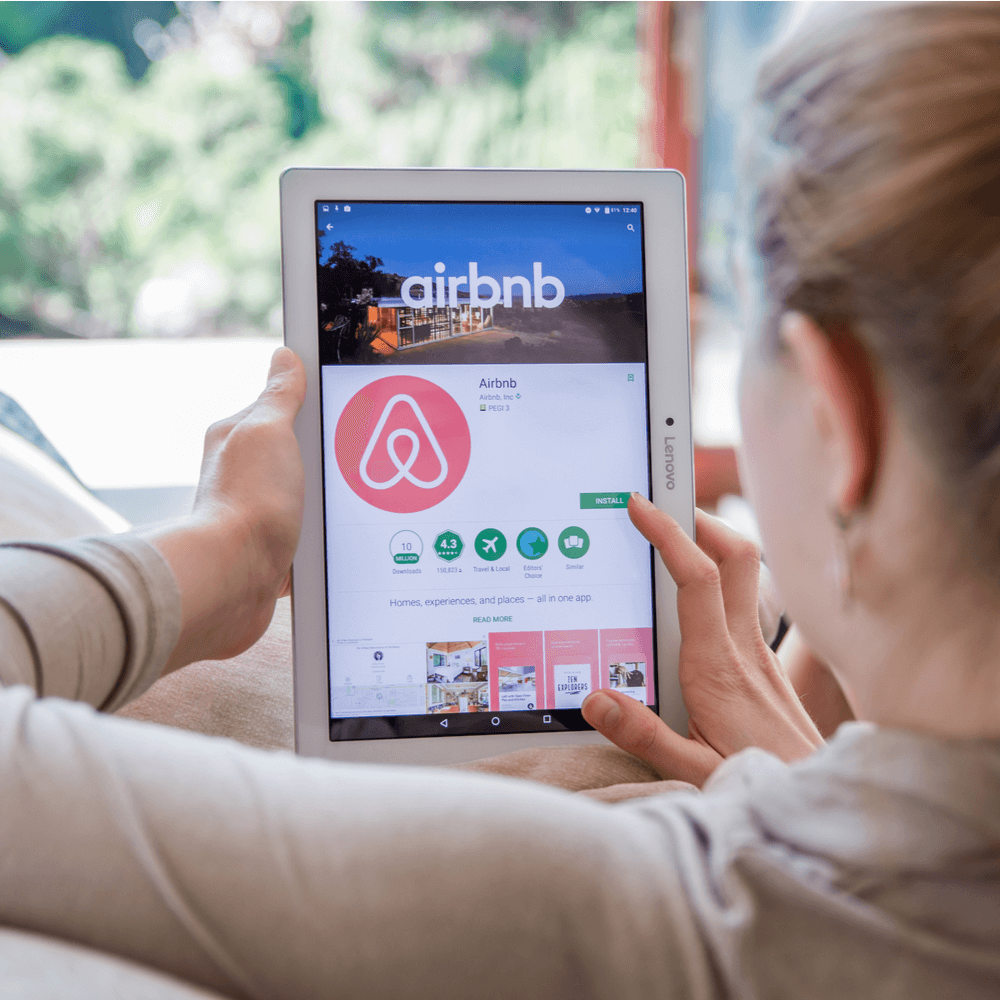
The most popular home-sharing service, Airbnb, offers an insurance program for people who list their accommodations on the site. However, this program, without another insurance policy, leaves Airbnb hosts uninsured for certain damages. And even if you have your own homeowners or renters insurance policy, it may exclude coverage because you're renting your home out through a home-sharing service.
It's important to make sure you have proper insurance protection before anything happens. So before you list your home Airbnb or another home-sharing website, it's important to do your research to learn what is and isn't covered and what additional insurance you may need to purchase, such as a landlord policy.
Start comparison shopping today to compare insurance quotes from multiple companies. Just enter your ZIP code to get started.
What does a standard homeowners insurance policy cover?
Homeowners insurance coverage protects your home from natural disasters, fire, theft, and other losses. Most policies will cover guests on the property, however, with Airbnb, the case is different. Even though Airbnb allows you to be selective with your short-term tenants, there are a number of additional risks associated with renting an Airbnb short-term rental that go beyond what a homeowners policy cover.
Beyond the increased risk to your property, having frequent guests on your property can also increase the risk that someone may get injured. This means that the risk of liability claims increases which can't be covered by a standard homeowners policy in a home-sharing situation. Since the short-term rental property is being rented to large groups, the liability policy limits would need to be much greater.
That's why it's important to have proper insurance that will cover you in home-sharing circumstances.
What does the Airbnb insurance policy cover?
It's important to understand what Airbnb's Host Guarantee actually is. Airbnb's Host Guarantee is not an insurance policy but is specifically designed to protect hosts from damage to their homes and possessions caused by a guest.
However, Airbnb does offer an insurance policy called 'Host Protection Insurance'. Airbnb's free Host Protection Insurance provides primary coverage (liability insurance coverage), which means it will cover the cost of injury claims before your personal insurance policy in addition to any damage to property for the property owner. This liability coverage from Airbnb is for up to $1 million for third-party bodily injury or property damage claims.
If a guest slipped stepping out of the shower and injured themselves and filed a lawsuit against the Airbnb host, the Host Protection Insurance would cover the liability claim, in addition to covering a third-party claim. So for instance, if a guest injured themselves while using a public amenity on the host's property, such as a gym or a swimming pool, the guest should also be covered.
Additionally, Airbnb's insurance policy typically protects the hosts from damages the guests may have caused to the structure of the home.
While these insurance options can be helpful, it's important to speak with your insurance carrier to understand how these policies work.
Save Money by Comparing Insurance Quotes
Compare Free Insurance Quotes Instantly
Secured with SHA-256 Encryption
What does Airbnb insurance not cover?
Although Host Protection Insurance is a form of insurance that covers damages to the host's house, it doesn't protect the host's personal belongings inside the place of residence. This includes any damaged and/or stolen furniture, clothing, or jewellery.
In the event a guest steals your own personal property, neither Airbnb insurance nor your own homeowners or renters policy would likely cover the loss because policies typically exclude a theft that takes place in the home being used by a paying guest.
If a host’s personal property was harmed in any way, they would have to rely on their renters or homeowners insurance policy in order to be reimbursed — though it may exclude coverage. If an Airbnb host is without another insurance policy, they may find themselves exposed to financial risk and loss of personal property because of gaps in coverage. Furthermore, Airbnb’s Host Protection Insurance won’t cover claims related to:
- Intentional crimes
- Loss of earnings
- Personal and advertising injury
- Fungi or bacteria
- Chinese drywall
- Communicable diseases
- Acts of terrorism
- Product liability
- Pollution
- Asbestos, lead or silica
Keep in mind that practically all insurers have a limit on the number of days you may host guests before it’s considered commercial activity and therefore excluded from coverage. It’s important to talk to your insurance company or agent before renting out your home with any home-share service to understand what is and isn’t covered by your personal insurance policy.
Do I need landlord insurance or business insurance?
You should make sure you have a proper policy and avoid a coverage gap if you rent your home through Airbnb. While it differs by homeowners or condo insurance carriers, most won't provide coverage in the event you're renting out your home.
So if you plan to rent your home through Airbnb or another home-sharing service, you should consult your insurance provider or agent to see if you need a landlord or business insurance policy for your rental property to make sure you have adequate coverage.
Chances are if you're planning to make some extra money by renting your home or secondary home out on the side, you'll need to buy extra insurance coverage to have proper coverage. Landlord insurance may be the type of insurance that you need in order to give you the liability insurance needed beyond a homeowners policy.
Make sure to check out Clearsurance's rankings page for the best homeowners insurance and renters insurance in your area.
Save Money by Comparing Insurance Quotes
Compare Free Insurance Quotes Instantly
Secured with SHA-256 Encryption
The content on this site is offered only as a public service to the web community and does not constitute solicitation or provision of legal advice. This site should not be used as a substitute for obtaining legal advice from an insurance company or an attorney licensed or authorized to practice in your jurisdiction. You should always consult a suitably qualified attorney regarding any specific legal problem or matter. The comments and opinions expressed on this site are of the individual author and may not reflect the opinions of the insurance company or any individual attorney.
Start comparison shopping today to compare insurance quotes from multiple companies. Just enter your ZIP code to get started.







